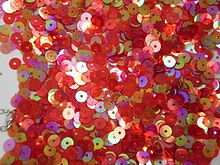Secondly, I forgot to mention in my first reading notes that the currency is called the sequin. I assume he is not getting rich with these....

Sequin. Web Source: Wikipedia.
Some further searching shows that the sequin was a Venetian currency, a gold coin minted from 1284 to 1797. In addition, the Ottoman Empire minted a similar coin starting in 1478. However, Sindbad's adventures occur during the reign of Harun al Rashid, who ruled from 763 to 809. His currency was the dinar, so the use of the sequin here is an anachronism, albeit an amusing one.
My more general takeaway was that Sindbad's story conveys what the narrator values without imposing an obvious moral on the story. For example, Sindbad survives multiple times because of the generosity of people who discover him starving, as after he escapes on a raft from the jeweled cliff and ends up in a strange land. At other times, he survives because of his patience and ability to endure crises with a cool head. He extols the virtues, particularly the justice of the king of Serendib. Finally, his end goal is spend the rest of his life with his friends and family. Thus, these stories extol the virtues of hospitality, endurance, justice, and family life positively. I appreciate this manner of conveying a message, with an interesting character, plenty of adventure, and rewards for the presence of virtue instead of consequences for its absence.
Bibliography: Andrew Lang's Arabian Nights' Entertainments, link.
Aucun commentaire:
Enregistrer un commentaire